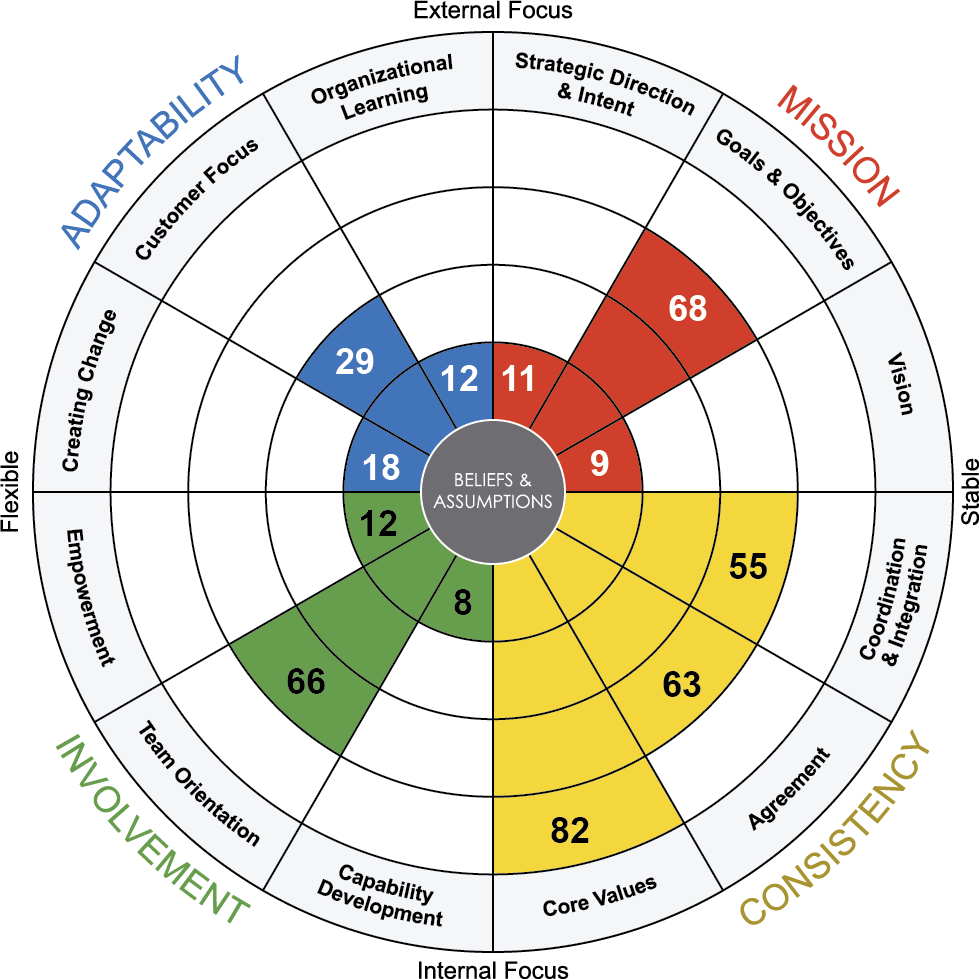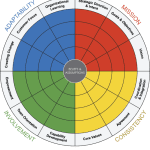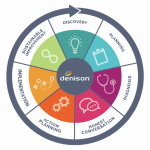The Denison Model
Measuring the 12 aspects of culture and leadership behavior most directly linked to performance, the Denison Model is the most robust benchmarking database in the industry. Combined with advanced analytics and AI, clients receive actionable insights that deliver improved performance.
The Denison Model has served 8,000 clients globally with over 5 million survey participants. Our 25 years of experience, expertise, and library of benchmarks are here to help you transform your company’s performance.

Mission
When the clarity regarding Goals & Objectives far exceeds the understanding of the Vision and Strategies, the organization excels at setting short-term priorities and tracking against those priorities. There is a risk of the work being more reactionary, and the workforce may have lost sight as to why the work is important and how near-term activity supports longer-term strategies. The focus is on the here and now, not the future.
Consistency
The Consistency trait shows up as a relative strength for the organization. There are a core set of values that are both understood and practiced. Employees believe that as problems and issues arise, those challenges will be discussed and an agreement reached regarding how best to proceed. Collaboration is valued as indicated by the above-average scores in Coordination & Integration, suggesting that silo behavior is not pervasive across the organization.
Involvement
Further evidence of the importance and appreciation for collaboration is reflected in the stronger scores in Team Orientation. Among the risks revealed are the ambiguity regarding empowerment and the belief that employee skills are neither invested in or valued. Teams become frustrated when they believe their ability to influence and execute work is constrained by a lack of appropriate skills and lower levels of empowerment.
Adaptability
In a world where the pace of change continues to intensify, this organization is at risk of losing sight of changes occurring in the business environment. Change is difficult to initiate and implement. The scores in Organizational Learning indicate that psychological safety is weak, resulting in fear of failures and mistakes. Customer wants and needs are unclear and the extent to which customer feedback is received and acted upon is also ambiguous.


